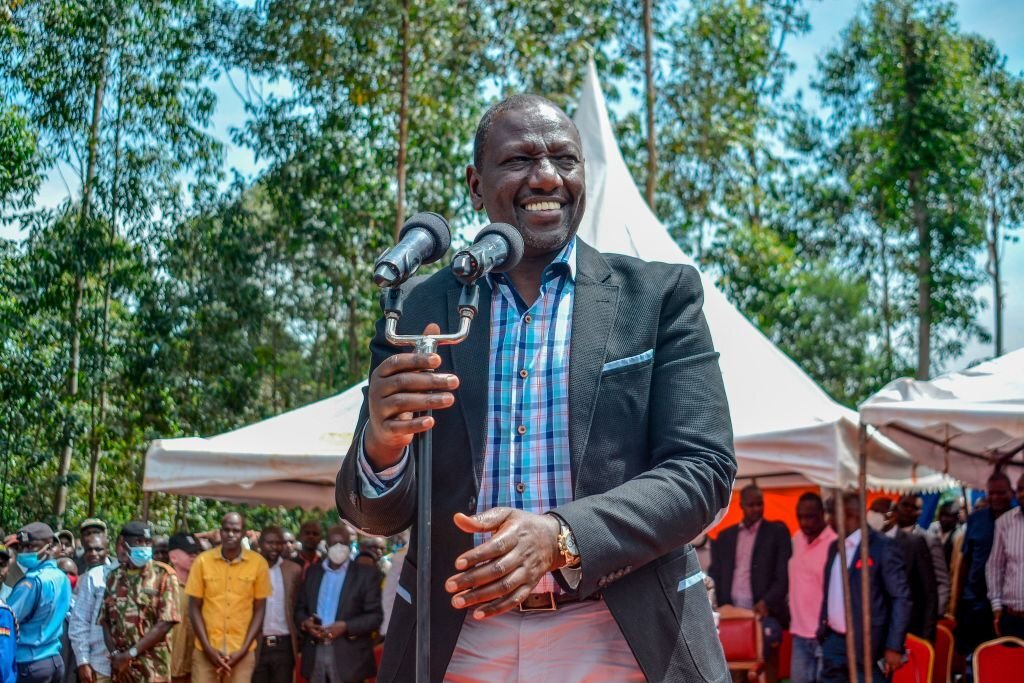
Kenya has been hit with several issues, following the year-old Kenyan anti-bill protest that drastically altered public perception of the country’s current administration.
- Kenya is facing significant challenges due to the long-standing protests related to the anti-bill protest movement.
- Public trust in government institutions has drastically declined, as highlighted by German Ambassador Sebastian Groth.
- A Geopoll study indicated that 63% of participants have little faith in the administration’s responsiveness to citizen concerns.
Some of said issues include constant public unrest, calls for an overhaul in public offices, and complete lack of trust in government, which was highlighted by the German Ambassador to Kenya, Sebastian Groth.
During an interview with Kenyan news publication, The Star, the German ambassador highlighted how much of an issue a lack of government trust is becoming.
“My impression, after talking to people from various backgrounds, is that there is a significant erosion of trust in public institutions,” Groth said.
“And a state cannot function properly if its citizens don’t have confidence in its institutions.”
The ambassador’s comments coincide with a Geopoll study titled “Perceptions on the June 25 Gen Z Protests in Kenya,” which found a significant decline in trust in the government.
SEE ALSO: Kenya’s president, Ruto, permits gun violence as a response to civil unrest
According to the report, 63% of participants said they had little faith in the administration to handle the issues raised by demonstrators.
Of these, 38% said they had “very little” faith in the government, while 26% said they had “no faith at all.”
During the interview, he noted that Germany can play the role of mediator in restoring the trust that has been lost, given how valuable the Kenyan market is to West-European country.
“We’re open to acting as a bridge between various groups because we understand the context from all sides and we are keen to help restore trust,” he stated.
“This relationship means a lot to us. That’s why we follow political developments in Kenya closely—every minute, every hour, every day,” the German ambassador added.
Olaf Scholz, the former German chancellor, has met with President William Ruto six times in just two and a half years, which is more than any other African leader has done in that time.
Groth also referred to the 2024 and 2025 June 25 protests as a watershed in the history of the nation.

“It marks the political awakening of an entire generation,” he said.
DON’T MISS THIS: A year after a violent protest, Ruto signs something called the “Conflict of Interest Bill”
“If you look at the 2022 elections, I was surprised by the low voter turnout among Gen Z — around 50 per cent, which was less than expected.
Now we’re seeing a generation that’s actively demanding political participation, economic reforms, and opportunities. This is a huge moment for Kenya.”
Kenya’s anti-bill protest
In June 2024, Kenyans took to the streets to demand the dissolution of a bill intended to tax basic products.
The 2024 protests would eventually pivot to anti-government protests, where the Ruto must go sentiment originated, as people called for the resignation of the president.
Young Kenyans, especially Gen Z, quickly took to social media platforms such as TikTok, X, WhatsApp, and Instagram using hashtags like #RejectFinanceBill2024, #OccupyParliament, and #RutoMustGo to organize nationwide demonstrations.
Online mobilization escalated to street demonstrations, and mid-way into June, thousands of Kenyans took to the streets to air their grievances.
A couple of days after the protests began, security forces opened fire, killing at least one protester, and igniting what was later dubbed the “Seven Days of Rage.”
Later on, thousands stormed the Parliament building in Nairobi, ransacked it, set parts on fire, and stole the ceremonial mace.
Police responded with live ammunition, killing between 19 to over 60 people, and injuring hundreds more.












